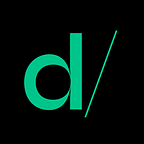Dcoding HR: Fostering Diversity & Inclusivity at Work
By Whitney Jones, Director of Operations.
Welcome to the “Dcoding HR” series, where each month I’ll discuss the ways Dcode constantly strives to be the #1 place to work in DC (and who knows, someday, I could be promoting Dcode as the #1 place to work in the country!). This month, I want to focus on Dcode’s commitment to diversity and developing a more inclusive workplace.
First thing’s first: Dcode is in the business of bridging tech and government. On the tech side of things, the stats on diversity are fairly, well, vanilla. Leadership in the government is more of the same. But this is where Dcode is unique.
While the average tech company has a leadership team that is over 80% white and less than half of tech companies even have female representation in leadership, Dcode’s C-suite comprises all women and our leadership team is 60% female. Company-wide, we’ve achieved near parity across the team at 57% female.
And it doesn’t stop there. Even our “diverse” is diverse. What do I mean by that? Well, in addition to our leadership team flipping the gender paradigm on its head, we also employ a racially, culturally, and ethnically diverse team, with nearly half of the team identifying as people of color (POCs). The Dcode team also hails from different educational backgrounds, from high school diplomas, some college and military experience to 4-year degrees, and multiple graduate degrees. This is to say, Dcode believes in working with people who are smart, passionate, and driven to learn, regardless of their exact backgrounds.
So how do we do it? Here are a few of the ways:
Recruiting: As I mentioned above, our team is a mix of educational backgrounds. When it comes to recruiting, we don’t have educational requirements listed in our job descriptions because it’s not our main focus. A number of other tech companies tout similar policies. Instead, we put an emphasis on core values: for Dcode, that means being a self-starter and a resilient hustler.
Hiring: Encouragingly, the federal government has regulations in place to ensure equal opportunity (EO) and affirmative action (AA) policies and programs are a legal requirements for employers. However, companies such as Dcode (under 50 employees) are exempt from these requirements. Dcode adheres to these regulations, despite our size, because ensuring we recruit, hire and retain talent from all backgrounds and protected classes is important, period.
We also work closely with organizations such as SHIFT and programs such as Education with Industry (EWI) that are dedicated to providing active duty military and veterans an opportunity to work in the private sector to help their transition from the military.
Retaining: Lastly, though recruiting and hiring are critical to getting a diverse team on board, if we aren’t reinforcing our culture of inclusion and diversity by constantly engaging our team, we won’t be able to retain and maintain our diversity. Dcode takes steps to keep employees actively engaged and thinking about the ways in which they can be inclusive, thoughtful and respectful of their fellow teammates. When a new team member comes on board, they have mandatory diversity and cultural inclusion training, which consists of educational videos on workplace diversity, cultural sensitivity, and inclusion.
Additionally, Dcode has company-wide diversity/inclusion events each quarter that feature a new topic or theme to foster an inclusive culture. Last quarter’s topic was white privilege, and next month’s topic will be on code-speak. We ask the team to read articles chosen on the topic, and rather than lecture, we come together as a team to discuss our thoughts, feelings, and opinions on the topic at hand. And trust me, not everyone has the same opinion — but Dcode empowers diversity of thought, and these open discussions foster dialogue among the team, which in turn leads to deeper understanding and more learning.
I want to be very clear however, diversity of thought does not mean acceptance of racism, bigotry, xenophobia, sexism, homophobia, etc. because Dcode has a zero-tolerance policy for this behavior.
At an event I spoke at recently about hiring in tech, a gentleman approached me before I was set to go on stage and told me he works in the IT industry. He asked me, “What can I do to get more women in IT — an industry in which women are extremely underrepresented — and specifically, women of color?”
It’s a great question. In fact, it caused me to pause: how does one diversify an entire industry? There isn’t a quick solution to this problem, but I encouraged the gentleman to start with attending, contributing, and lending his expertise at events designed to teach young women how to code and learn critical STEM skills. It will take a generation to see change, but well worth the wait.
At the end of the day, Dcode is constantly iterating on how we can diversify. Have we figured it all out? Not quite, but I think we’re doing a damn fine job.
As always, I welcome your ideas on how to create, cultivate, and foster a more diverse workplace. Send thoughts, comments, and questions to: whitney.jones@dcode.co.
Whitney is the director of operations at Dcode. She oversees the human resources department including recruiting, hiring, internal policy, and employee engagement. When Whitney isn’t working on making Dcode “pop off,” she’s probably drinking wine, hanging out with her cat (Trilly Bean Jones), or both — because they aren’t mutually exclusive, after all.
